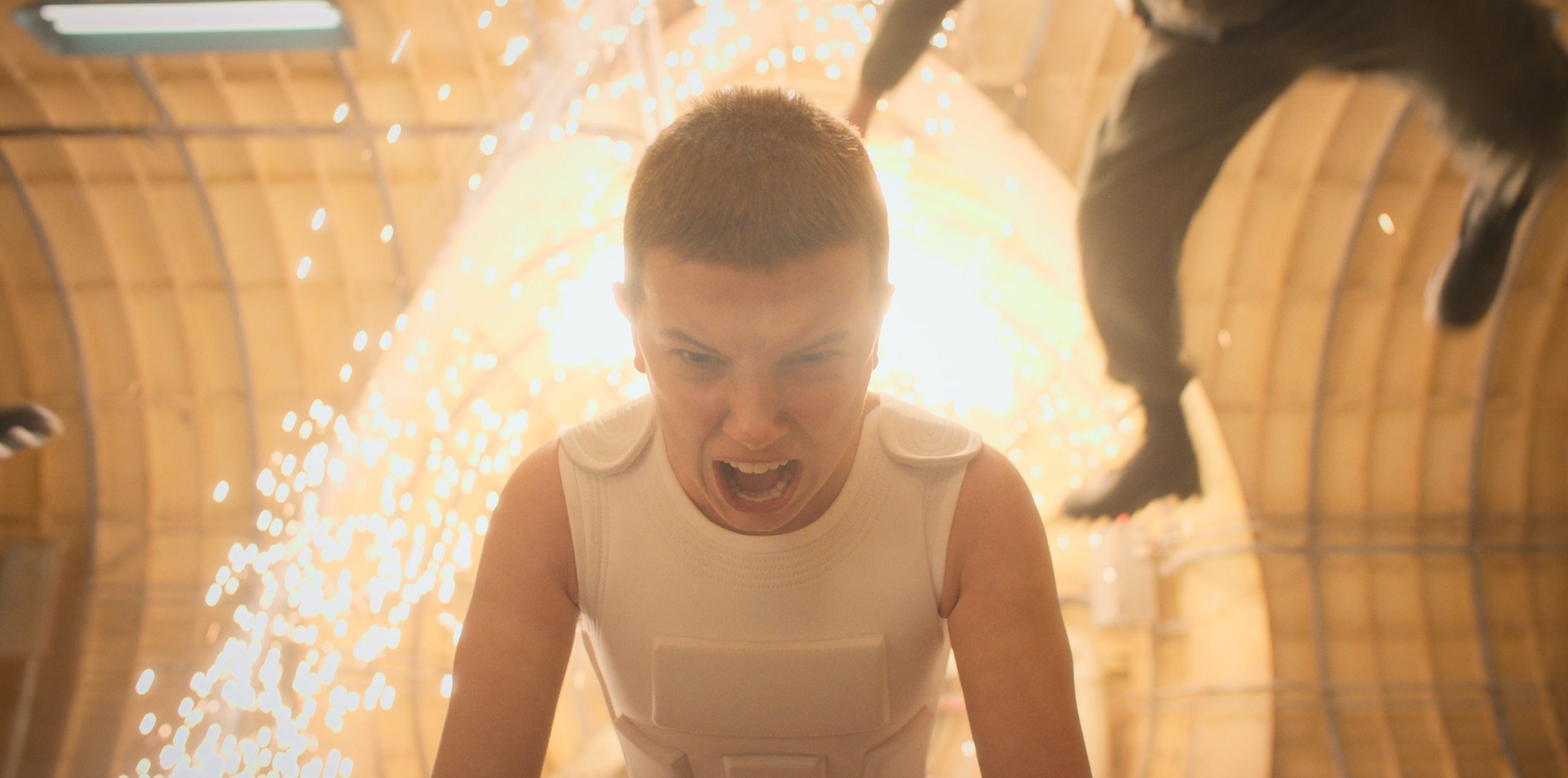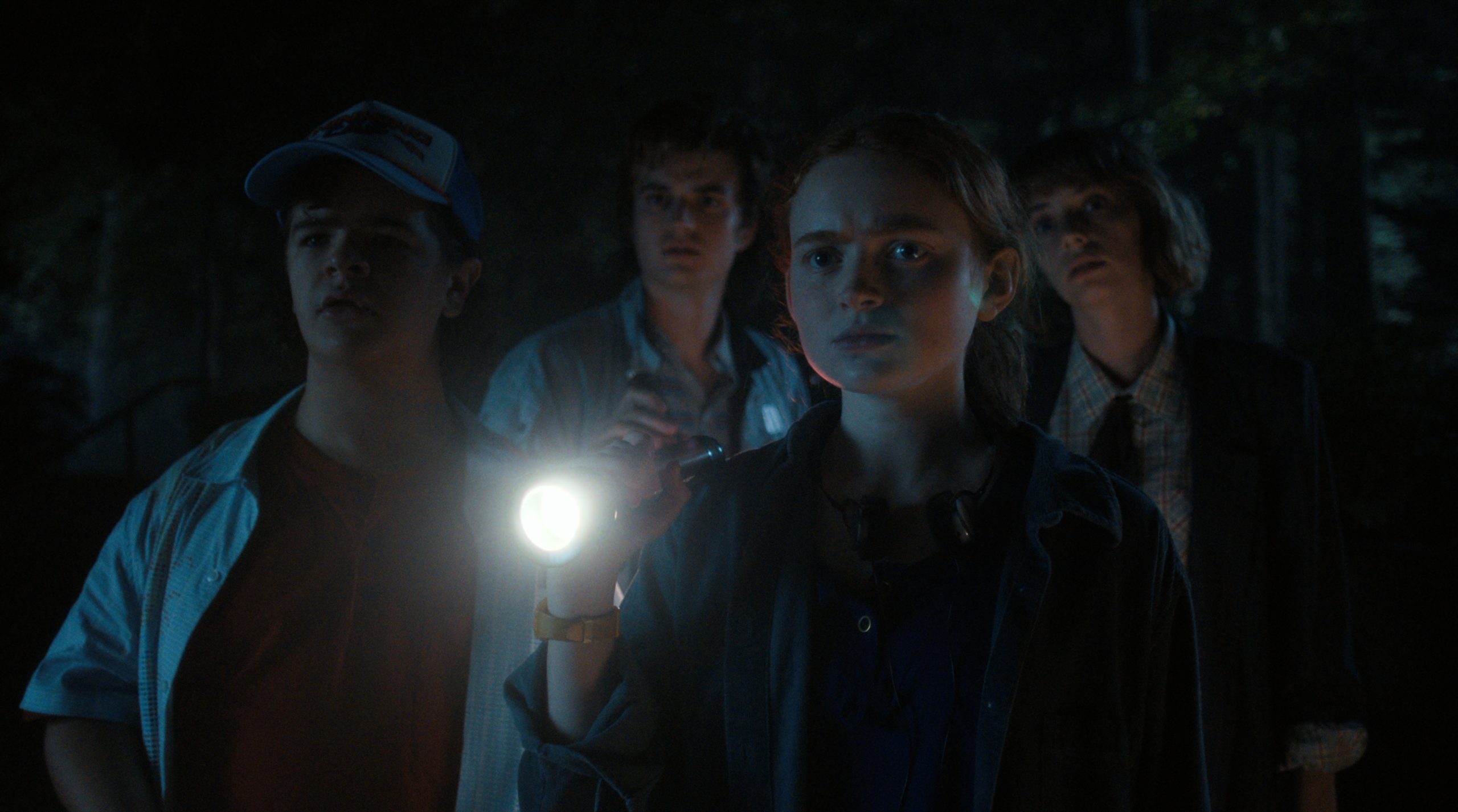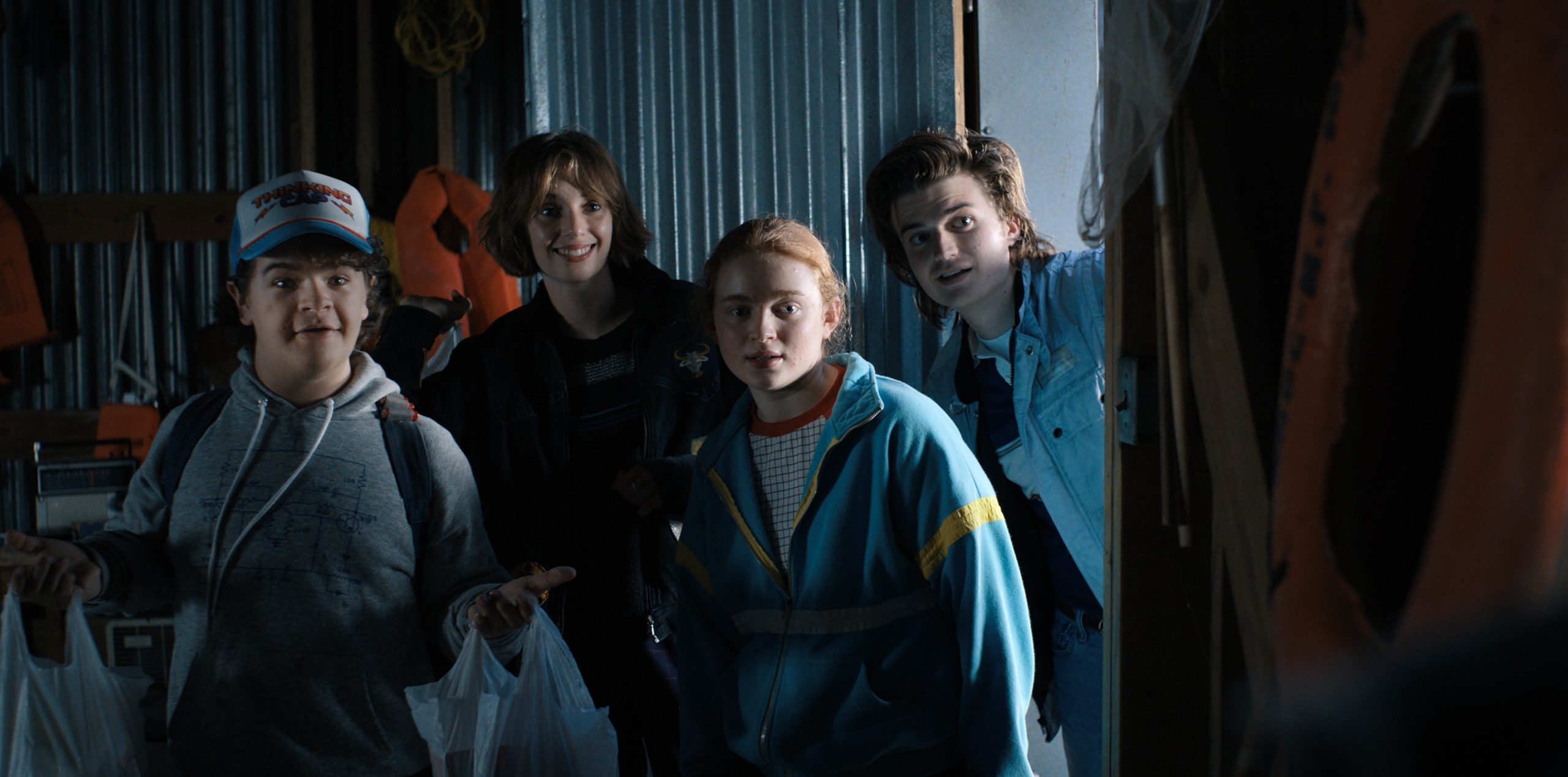
This article contains spoilers for Season 4 Volume 1 of Stranger Things
Sci-fi and horror have never been scary because of the boogeymen or the aliens that lurk in the dark, ready to strike. Whether it’s the xenomorph’s tail that is positioned between Lambert’s legs in Alien, Reagan’s head spinning in The Exorcist or the grief that Toni Colette goes through in Hereditary, horror has always been about humans and our emotions.
This has never been as true as it is with Season 4 of Stranger Things. The series has always had its roots in horror and 80s nostalgia. Yes, there are monsters, but the true villains have always been human. Whether it’s Doctor Brenner (Matthew Modine) or Billy (Dacre Montgomery), the series has its feet firmly planted on the ground.
Season 4 introduces us to a new villain. Vecna is presumed to be a dark wizard who captures and traps its victims in the Upside Down while mangling their bodies, killing them in the real world. He’s veiny and slimy, but there is an eerie sense of humanity to Vecna. He moves a little too straight, and his eyes have a distinct stare that burrows into you.
This is where we venture into spoiler territory so consider this your last warning to turn back if you haven’t seen every episode of Season 4, Volume 1.

Still here? Wonderful!
Vecna is revealed to be One, the very first of the gifted children. Eleven encounters him at the lab as a friendly orderly, and he tricks Eleven into freeing him and his powers after Brenner places a divide under his skin to subdue them. It’s revealed that it’s One, or Henry, who massacred all the children in the lab. He and Eleven face-off, but Eleven, powered by sadness and rage, sends One to the Upside Down, which eventually turns him into the creature the kids call Vecna.
Episode 7, the last one in Volume 1, sets Eleven and One on a course for a vicious rematch, but the meaning behind it is much deeper than just two super-powered individuals facing off. One represents all of Eleven’s fears. She’s frighteningly powerful and could have easily turned like One; evil, regretful and hateful.
In many ways, Eleven is set to confront her own fears and demons in Volume 2 of Season 4. Eleven has also had to get used to a life without her powers after losing them at the end of Season 3. The first two episodes of Volume 1 focus largely on Eleven’s new life as just a regular, bullied kid in school. She’s had to get used to feeling helpless and vulnerable with no superpowers to use against her bullies.
And it’s not just Eleven who is struggling this season. Max Mayfield (Sadie Sink) is still reeling over her brother Billy’s traumatic, violent death. She’s haunted by the vision of the Mind Flayer killing Billy in front of her eyes and uses her walkman and the song ‘Running Up That Hill’ by Kate Bush to tune out of the harsh reality.

Viewers have noted how Max’s use of music is very true to life. Many have used songs to overcome mental health issues or at least help cope with them. Many artists have put their own experiences with mental health into songs, so it’s no wonder we often turn to music to help us through tough times. The ending of episode 4, titled ‘Dear Billy,’ might be one of the most accurate depictions of mental health we’ve seen.
Max is about to be killed by Vecna, her consciousness is stuck in the Upside Down with him, while her rigid but lifeless body is rising in the air in the real world. Her friends plug in her favourite song, which cuts through the Upside Down. Max can see the light at the end of the tunnel, quite literally, as a view of the reality in which Max’s friends are desperately trying to save her opens up.
Max then finds the strength to break free from Vecna’s grip and starts running towards her friends. She’s running, in slow motion, as ‘Running Up That Hill’ grows and grows and grows until… the screen cuts to black. For a moment, you think Max has perished, but she then wakes up in reality and falls to the ground, having won this round with Vecna.
But the thing is, Vecna isn’t defeated, and Max probably isn’t safe. The group treats Max as if she’s still in danger, and if Vecna represents trauma and depression, she is. It’s not necessarily an evil that can even be defeated; if it can, it’s difficult because it always seems to have the upper hand.
Eleven and Max must confront their past demons to break free from Vecna/One. This season, more than ever, has dug deep into the themes and elevated the show from nostalgia-driven fodder into a thoughtful exploration of what makes us human.



